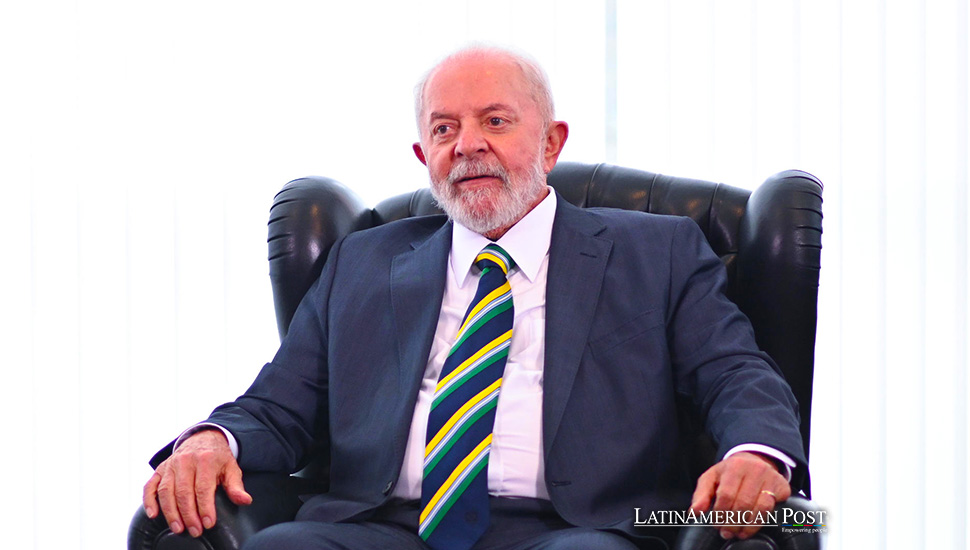Lula Pledges Federal Action in Brazil’s Land Conflict After Tribal Leader’s Death

Brazil’s President Lula promises a decisive federal response following the tragic death of an Indigenous leader amid escalating land disputes in Bahia.
Deepening Tensions: Indigenous Tribes and Farmers Clash in Bahia
In a recent and tragic escalation of long-standing land disputes in Brazil, a conflict between Indigenous people and farmers in southern Bahia has culminated in the shooting death of a tribal leader. This incident brings to the forefront the deep-seated tensions between Brazil’s Indigenous communities and agricultural settlers. These tensions have been exacerbated by differing political stances on land rights. The response of Brazil’s President Luiz Inacio Lula da Silva, promising federal intervention, marks a significant turn in the government’s approach to these complex and historically rooted conflicts.
The roots of this confrontation lie in the years of contention over land rights between Brazil’s Indigenous peoples and agricultural settlers. Former far-right President Jair Bolsonaro was known for supporting farmers’ rights, often at the expense of Indigenous claims. However, with Lula’s election, there has been a shift. His pledge to back Indigenous claims aligns with his broader commitment to environmental preservation, reflecting a different ideology and approach to Brazil’s sensitive issue of land rights.
Lula’s statement, assuring the Pataxó people of federal government support in resolving the situation, was made during a radio interview, underscoring the urgency and seriousness with which his administration is treating the matter. The incident in question involved about 200 landowners who gathered in pickups at a farm outside the town of Potiraguá with the intent to evict an Indigenous community and reclaim land claimed by the Pataxó tribe. This confrontation tragically resulted in the death of Maria Fatima de Andrade, a respected leader known as Nega Pataxó. Another leader was wounded in the altercation and hospitalized, according to the Ministry of Indigenous Peoples.
Legal Action and Ministerial Condemnation
In response to the attack, Bahia police have arrested two farmers on charges of homicide and attempted homicide. This police action demonstrates the state’s immediate response to the violence. Still, it also highlights the complexities of law enforcement in areas where land disputes are common. Sonia Guajajara, appointed by Lula last year to head the newly-created Ministry of Indigenous Peoples and the first Indigenous person in Brazil to be a cabinet minister, condemned the attack on the Caramuru Indigenous territory as unacceptable. Her role and statements represent a significant change in Brazil’s political recognition and support for Indigenous rights.
The police also arrested a Pataxó man for possession of a homemade firearm, and a farmer was reportedly wounded in the arm by an arrow, indicating the high tensions and the dangerous escalation of violence in these disputes. These incidents are not isolated but are part of a broader pattern of clashes over farmland in Brazil. As the country’s farm belt expands towards the Amazon, confrontations between Brazilian Indigenous groups claiming their ancestral lands and farmers have increasingly turned violent. This recent incident in Bahia is a microcosm of Brazil’s larger struggle for land rights.
This struggle has deep historical roots and significant implications for the country’s social and environmental policies. The clash indicates Brazil’s broader challenges as it seeks to balance agricultural expansion with the rights and preservation of Indigenous communities and their lands.
Federal Intervention: A Turning Point?
President Lula’s pledge of a federal response reflects an acknowledgment of the need for a more comprehensive and nationally coordinated approach to these disputes. It suggests a move away from the previous administration’s policies, which often favored agricultural development over Indigenous rights. The federal government’s involvement could provide a more impartial and effective means of resolving these conflicts, ensuring that the rights and needs of all parties are considered.
However, the path forward is fraught with challenges. Balancing the demands of Brazil’s robust agricultural sector with the rights and preservation of Indigenous lands will require careful navigation. It will necessitate policies that respect the rights of Indigenous communities, protect the environment, and consider the economic realities of farming in Brazil.
Also read: Two Detained in Ecuador Following Gang-Related Prosecutor Murder – Police Report
Urgent Need for Solutions: Tragedy in Bahia
The fatal shooting of a tribal leader in Bahia is a tragic reminder of the ongoing land disputes in Brazil and the urgent need for practical solutions. President Lula’s commitment to a federal response marks a potential turning point in addressing these issues. However, successfully resolving these disputes will require government intervention and a broader societal commitment to respecting Indigenous rights and finding sustainable ways to manage Brazil’s rich and diverse lands. As Brazil moves forward, the world watches how one of its most challenging and vital issues will be navigated under Lula’s leadership.




